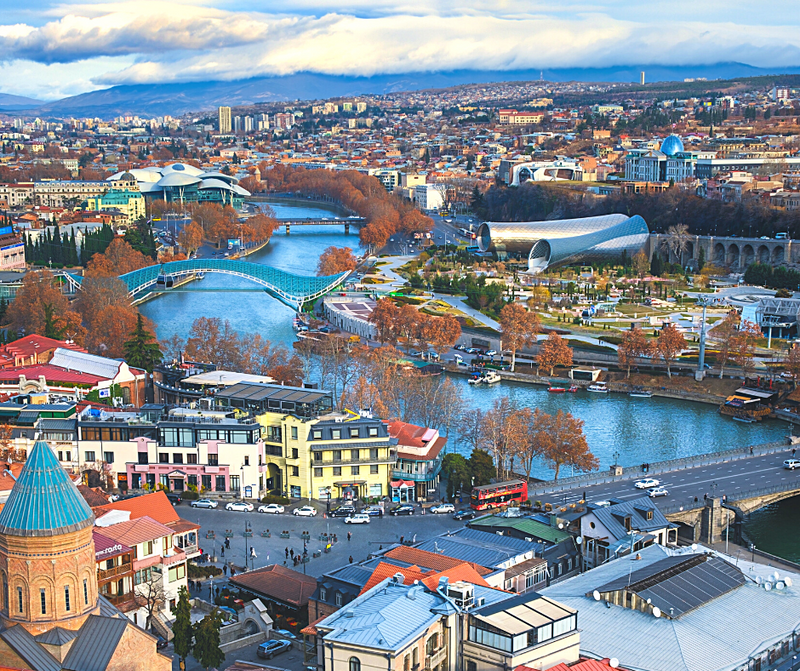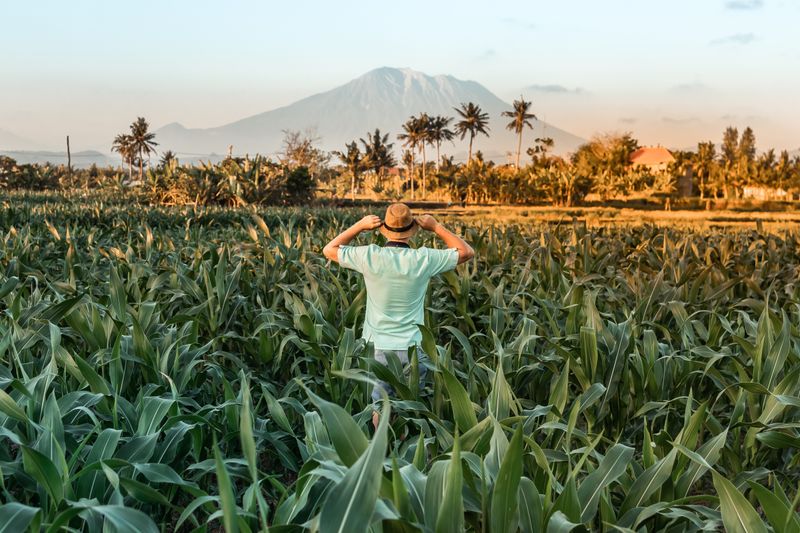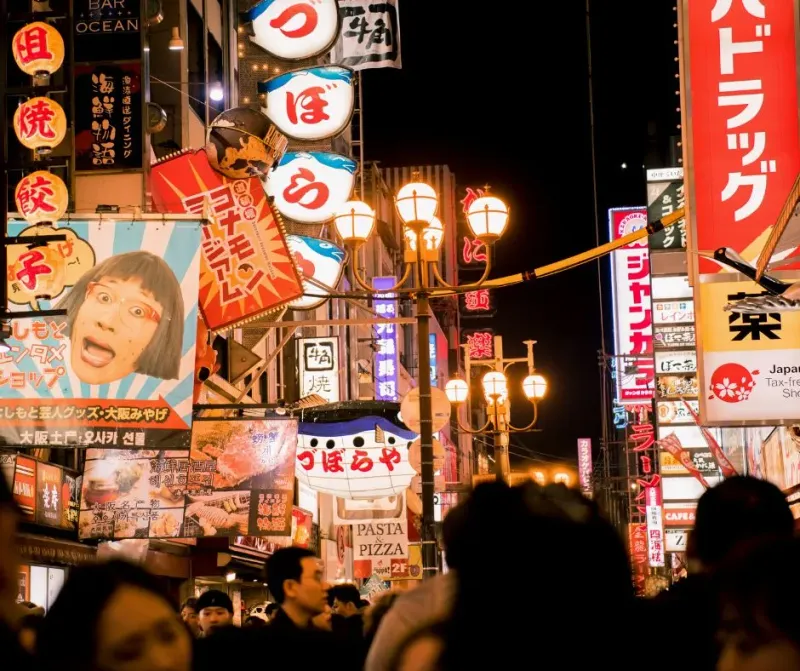[last updated: June 20th, 2022] Nestled between the Caspian and the Black Sea lies Georgia, a very old country whose history of human civilization dates back 1.8 million years making the Georgian society one of the world's oldest. No surprise that you find the world's oldest cities in Georgia, namely Mtskheta and Kutaisi. Kutaisi served as the capital of the United Kingdom of Georgia from 1008CE to 1122CE. You can find one of the oldest Jewish communities in Georgia.
Georgia is the country where people, who speak a unique language, started making wine some 8,000 years ago already. The country has a subtropical climate with hot summers and mild to cold winters, and it can rain all year round. In its mountains, you can find Bochorna and Ushguli, two of Europe's highest settlements with 2,345m and 2,100m. In Gudaurim you find a ski destination that gains more and more popularity for winter sports.
🇬🇪 Entry requirements for Georgia
- Visa: For many countries, their citizens/passport holders are allowed to enter Georgia and stay up to 1 year without a visa.
- Insurance: Travel health insurance that matches the Schengen requirements. Your insurance policy needs a minimum amount of 30,000 Euros of emergency cover.
🌱 Travel health insurance for Georgia
🏡 How to find a place
Tbilisi might be on the radar for the advanced nomad but might not be one of the first destinations that come to mind for someone who just starts out. Georgia as a whole, but Tbilisi specifically, has become more and more attractive to remote workers, two reasons are the affordable cost of housing and the growing nomad community.
- Airbnb: During summer, you can find apartments for between 500 and 700 Euro monthly rent in Tbilisi. In winter, prices go down by a few hundred, and you can find a place starting at 350 Euro.
- Facebook groups: Join the local Facebook groups, for example, Apartments For Rent And For Sale In Tbilisi, Apartments for rent in Tbilisi, and Тбилиси Объявления Аренда жилья,апартаменты,квартиры, Apartment Rent Грузия.
- Coliving spaces: A very affordable coliving space is LOKAL Tbilisi, a modern coworking and colivling with a focus on community.
✈️ How to get to Georgia
- Plane: The international airport of Tbilisi is located 17 km southeast of the city, and is the main airport of the country. The majority of the passengers come from Turkey, followed by UAE, and Ukraine. Germans make the 9th biggest traveler group in Georgia. Tbilisi is connected via direct flights to 34 airports in 20 countries. Arrived at Tbilisi International Airport, you can choose between taking the train (Tbilisi-Airport 7:55 am Airport-Tbilisi 8:35 am, and Tbilisi-Airport 4:55 pm Airport-Tbilisi 5:40 pm. The train takes 40 minutes), the bus (no. 337) or the taxi (20-30 minutes drive).
- Train: Traveling to Georgia by train makes sense when coming from countries like Bulgaria (ferry included, 54 hours), Turkey (buses are faster), Ukraine (48 hours), or Azerbaijan (12 hours overnight).
🚌 Public transport in Tbilisi
- Metro: The metro in Tbilisi consists of 2 lines and 23 stops. You can buy a metro card that is rechargeable. You can top up the card at any metro station, and the card itself costs 2 Lari, also known as GEL, Georgian Lari) (0.70 Euro).
- Bus: Taking a bus around the city costs 1 Lari (0.35 Euro), and you can buy the ticket either inside the bus at a machine or pay with your metro card mentioned above. If you buy a single ticket, make sure you have 1 Lari as the machine doesn't give change.
- Minibus: You can find yellow and blue minibusses on the street, you can hail a bus from the street and ask the driver which route. Buses have no fixed routes and the concept works like the Song Theo in Chiang Mai, so you basically need to know where you want to go and check with the driver if your destination is along his route. Taking a minibus costs 1 Lari (0.35 Euro) which you need to pay in cash.
- Taxi: A rough rule of thumb is that the starting fee is 2-3 Lari and every additional km is plus 1 Lari. Taxis in Tbilisi do not use meters, so every ride is a calculation followed by negotiation.
- Uber: Although Uber is not available in Tbilisi, you can use Bolt and Yandex.
🏘 Where to stay in Tbilisi
- Tsereteli: Maybe the coolest and hippest neighborhood in Tbilisi, and famous for its huge outdoor food bazaar, the Dezerter Bazaar. This neighborhood is a bit farther away from the center, but reachable by metro.
- Vera: A family-friendly and very green neighborhood, close to Old Town but still calm and quiet. Vera has some nice parks and greenery, but it is also hilly, so not for the lazy walker :-)
- Avlabari: A budget-friendly neighborhood with metro access has many local restaurants, shops, and an upcoming and hip vibe, although the place is not there yet, you can see the development.
🧑🏻💻 Where to work from in Tbilisi
Coworking spaces in Tsereteli
- ANO: This boho-chic coworking space looks already different than the typical coworking space, it comes with 24/7 access, free unlimited tea and coffee, and just everything nomads want to feel cozy and homey. The month costs around 100 Euro.
Coworking spaces in Vera
- Terminal Khorava: A modern facility that offers monthly memberships starting at 140 Euro. Signing up for this coworking space gives you access to their events at all of their six locations in Tbilisi.
- LOKAL Tbilisi: This coworking and coliving space is located in the calm and quiet neighborhood of Vera, and offers modern facilities, high-speed internet, and a focus on community.
Coffee shops in Vera
- Shavi Coffee Roasters: Another wonderful café with excellently trained baristas, a good menu, and decent work spots in a bright space with big windows.
- Coffee Lab: For some of us this place might serve the best coffee in town. It is a cool, modern place, with indoor and outdoor seating, fast wifi, and available sockets.
Other nomad-friendly coffee shops
- Sculpture Bar: This place in the Vake district is next to the Vake Park, a beautiful recreation place in Tbilisi. Sculpture Bar opened in 2022, and welcomes you with minimal but chic decor, fast wifi, delicious coffee, and small tables both, inside and outside the café.
🚊 How to travel around Georgia
It is not super straightforward to travel from A to B in Georgia. Many destinations require a taxi for the last part or a combination of train, bus, and taxi. This is due to the fact that some sites are not close to towns and require some fine-tuning at the end.
- Train: Georgian railway system connects major towns within the country, and the hub is Tbilisi. Trains consist of modern double-decker trains, overnight trains, and old, slow Soviet trains. There is an express train (Stadler train) operating between Tbilisi and Batumi at the Black Sea. However, it still takes 5.5 hours.
- Tbilisi - Uplistsikhe caves: 1.5 hours, train ticket between 4 and 7 Euro. - Bus: There are several bus companies offering different routes. Here are 2 routes to 2 sights near Tbilisi.
- Tbilisi - Uplistsikhe caves: 1 hour 45 minutes.
- Tbilisi - Kazbegi: 5 hours by bus or 4 hours by taxi. - Taxi: A rough rule of thumb is that the starting fee is 2-3 Lari and every additional km is plus 1 Lari. Taxis in Tbilisi do not use meters, so every ride is a calculation followed by negotiation.
- Tbilisi - Ananouri Castle: 45 minutes drive.
- Tbilisi - Gareja caves: 1.5 hours drive. - Plane: Some parts of the country are simply too far to reach overland, so hop on the plane, for example to Svaneti, in the Caucasus mountains, or to Batumi at the Black Sea.
🎖Must see in Georgia
- Tbilisi: Nick and Hannah (Saltinourhair) composed a 3-day trip for Tbilisi, and the itinerary is really cool. They suggest visiting the Maidan Bazaar for unique vintage, crafts, local and homemade food, and wine. Gallery 27 is just a few minutes walks away. Continue to the Orbeliani Bathhouse, stroll through Vake Park, have a coffee at the Sculpture Bar, and make sure to end your day at Fabrika, one of Tbilisi's cool and hip places for food, drinks, coworking, and entertainment. Worth seeing is also the Palace, the Fortress, the Leaning Clocktower, and the architectural Peace Bridge. Check out their blog for an awesome day on the outskirts of the city.
- Uplistsikhe: In a 1:45 hours drive you can reach Uplistsikhe, an ancient fortress with Anatolian, Persian, and Christian cultures. It is one of the oldest human settlements in Georgia and consists of a big tunnel and cave system.
- Ananouri Castle: Take a taxi (45 minutes drive) to the Ananouri Castle, a strategically and politically important place that was fought over by many different smaller kingdoms. In 2007 the castle was enlisted as a UNESCO World Heritage site. The site is surrounded by forested hills.
- Gareja caves: Another day trip from Tbilisi is a drive to the Gareja cave monastery (1.5 hours drive), which is located close to the border of Azerbaijan. Founded by an Assyrian monk, Saint David, in the 6th century, the monastery has been steadily expanded. With the Bolshevik takeover of Georgia, the monastery was closed and lost its glory. However, today, the monastery is open again and welcomes visitors.
- Batumi: The second biggest city in the country lies on the shores of the Black Sea, and is an important location for the Georgian Orthodox church but also for science, and universities. Batumi is only 18 km off the Turkish border and makes a relaxed summer holiday destination for those who have some time left.
💡Good to know
- Internet: The median internet speed for fixed broadband is 20 Mbps download and 19 Mbps upload.
- Sim card: You can choose between Magti, Beeline, and Geocell. Magti has the best coverage, but packages are a bit more expensive than the competitors. It's advisable to buy the sim card in a shop in town and not at the airport.
- Digital nomad community: Tbilisi is a rising star among the nomad destinations, join the local Facebook group Tbilisi Digital Nomads with nearly 9,000 members. To meet people in Tbilisi, join one of the groups on meetup.com, and check the event calendar.
- Cost of living: Per month, a single person should budget around 1,300 Euro for living expenses including rent and maybe coworking, depending on how much you spend on different things. Tbilisi is one of the lower-cost cities in Europe.
- Currency: The currency in Georgia is called Lari, which is divided into 100 Tetri. The abbreviation is GEL. 1 Lari is roughly 0.3 Euro or 30 Euro cents.
- Climate: Almost moderate with some sultry months with high humidity and high temperatures in the Georgian climate. For tourists, the most attractive months are June to August and the least attractive months are November to March.
- Cuisine: Georgian cuisine is similar to the Caucasus cuisine, and in general, eating and drinking are an important part of the Georgian culture. As part of the Silk Road, the country got influenced by the products of the traveling merchants, and spices, herbs, powders, and cooking techniques from all corners of the world would pass through Georgia. Famous are spinach Pkhali with cranberries, bread such as Tonis Puri or Mchadi, an internationally celebrated bread named Khachapuri that comes with cheese, and egg, but also different soups, stews, and salads. Try Khinkali, meat and spices-filled dumplings, the vegetarian dish Lobio, and of course sip the Georgian wine. As the conscious reader remembers, Georgian wines are the oldest wines in the world.
- Safety: Georgia ranks 89th on the Global Peace Index, and shows an increase in the index in the past 20 years. All in all, Georgia can be seen as a safe country, especially for tourists.
🚧 What to avoid
- Georgia is not Russia: Although many older Georgians speak the Russian language, the Russian government in Russia wants to increase the military presence of the Russian army in Georgia, Stalin, head of the Soviet Union was born in Georgia, and Georgia is not Russia. In fact, the country is fighting for its sovereignty.
- Political discussions: Talking about politics, I would avoid getting involved in political discussions. Not just because of the current war in Ukraine, but also because you will find different opinions on topics, and as travelers, I think we should not hold strong opinions on topics we have no deep knowledge about.
- Homophobia: I am sorry to mention it but Georgia is a deeply religious country, following the conservative string of Orthodox Christianity. Being openly gay (and everything GTBLQ-related) might cause problems, conflicts, or resistance. I found an article by Stefan Arestis "Gay Georgia travel: the ultimate gay guide for LGBTQ travelers" which gives more insights on this topic.
🚴🏻♀️ How to stay healthy
Stay active
- Walking Tbilisi: Combining sightseeing with fitness is always a great way to get your steps in as well as get to know a place. The website komoot.com shows 7 hikes in and around Tbilisi for those who visited the main sites in the city center already.
- Hike to the Gergeti Trinity Church: Take a taxi or the minibus, or a combination of an overland bus and a taxi to Stepantsminda village, the trailhead for hikes to Mount Kazbegi and Gergeti Trinity Church. The hike from the village to the church is 6 km. You can extend this hike to the glacier (22 km both ways).
- Cycling: Tbilisi is not known to be especially bicycle-friendly, and only a few people use a bicycle for both, commuting to work or leisure.
Health risks
- Water quality: You can drink tap water in Tbilisi.
- Air quality: The air quality in Georgia is moderate. The biggest air pollution comes from the rising number of vehicles.
⚓️ Long stay
Digital nomad visa
- Digital nomad visa: When applying for the digital nomad visa, you need to prove your remote work, a monthly income of at least 2,000 USD, a valid passport, and travel health insurance.






